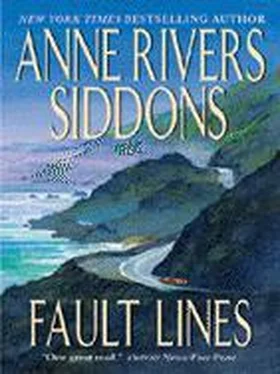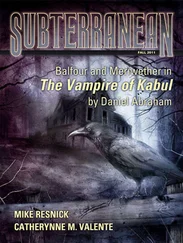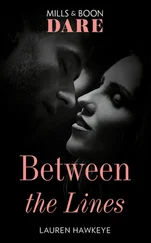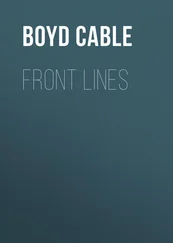Anne Siddons - Fault Lines
Здесь есть возможность читать онлайн «Anne Siddons - Fault Lines» весь текст электронной книги совершенно бесплатно (целиком полную версию без сокращений). В некоторых случаях можно слушать аудио, скачать через торрент в формате fb2 и присутствует краткое содержание. Жанр: Старинная литература, на английском языке. Описание произведения, (предисловие) а так же отзывы посетителей доступны на портале библиотеки ЛибКат.
- Название:Fault Lines
- Автор:
- Жанр:
- Год:неизвестен
- ISBN:нет данных
- Рейтинг книги:3 / 5. Голосов: 1
-
Избранное:Добавить в избранное
- Отзывы:
-
Ваша оценка:
- 60
- 1
- 2
- 3
- 4
- 5
Fault Lines: краткое содержание, описание и аннотация
Предлагаем к чтению аннотацию, описание, краткое содержание или предисловие (зависит от того, что написал сам автор книги «Fault Lines»). Если вы не нашли необходимую информацию о книге — напишите в комментариях, мы постараемся отыскать её.
Fault Lines — читать онлайн бесплатно полную книгу (весь текст) целиком
Ниже представлен текст книги, разбитый по страницам. Система сохранения места последней прочитанной страницы, позволяет с удобством читать онлайн бесплатно книгу «Fault Lines», без необходимости каждый раз заново искать на чём Вы остановились. Поставьте закладку, и сможете в любой момент перейти на страницу, на которой закончили чтение.
Интервал:
Закладка:
From that it was only a small step.
With anybody else, then? All those nights and weekends away at the clinic, all that time…if not this Jamaican Bella, then someone else?
I tossed away the Kleenex and followed Jenny out of the ladies’ room. I believed her with all my heart, but something in my guts hurt; my very womb ached.
Pom and Phil were waiting for us in the doorway of the dining room. Pom came up and put his arm around me and buried his nose in the wilted hibiscus.
“Tondelayo wait up for big man?” he said.
“Big man going out on toot?” I said, my heart sinking.
“Big man going to take Big Bucks bwanas out for—Oh, hell, you can guess where the Charlotte contingent wants to go. I’ll try to palm it off on Phil after a little while. You take the car and go on. I’ll get a ride. Don’t wait up; I was only kidding. We’ll probably be a while.”
“I wish you wouldn’t,” I said, and he looked at me. I had never said it before.
“I have to, honey. These guys are almost sewed up. There’s nothing on the agenda for a long time after this. And Cookie’s there, so you should be able to sleep without having to check on Mommee.”
“I know,” I said. “I just miss you sometimes.”
“Me, too,” he said, tightening his grip on my shoulders. “I changed my mind: do wait up.”
“Maybe I will,” I said, smiling, and he smiled back and started across the dining room after Phil. Halfway across he looked back and then dropped to one knee and flung one arm out and laid the other hand across his heart.
“But soft,” he shouted, “what light from yonder window breaks? It is the East, and Merritt is the sun!”
And I laughed, my heart turning over beneath the white halter. Just before we were married we went to see a rerun of Zeffirelli’s Romeo and Juliet , that consummately beautiful film in which the luminous nakedness of the two young principals ignited such a controversy. I had been so moved by it that I had wept mutely when it was over, and was unable to speak for a time after we left the theater for the sobbing that kept bubbling up in my throat. Pom, trying uneasily to comfort me, stumbled in his haste and clumsiness and went down on one knee. Looking up at me, he laid his hand over his heart and said those words, and I stopped crying and laughed, and then wept again at the flood of love that welled up in me, to see him there on the asphalt of the parking lot, telling me in those ineffable old words that he loved me.
I had not thought of the incident for a long time until tonight. Now, the same tide of love surged through me. This time I laughed and did not cry.
“Have fun, you incredible fool,” I called back to him. When the Cherokee came round, I rolled down the window on my side, and found the late-night jazz program from Clark College. Don Shirley curled out into the warm night: Orpheus in the Underworld ; I had had the album at school. I hardly thought of the ugly words Sweetie Cokesbury had spoken in the ladies’ room during the entire soft, mimosa-smelling drive home to the river.
Hardly.
3
Mommee thought my daughter, Glynn, was the angel of death. When she had first come to stay with us Mommee was still able to watch television, or at least, to sit fairly quietly and watch whatever it was that she saw on the screen. Only later did she become so agitated and distractible that she could not sit still, but got up to shuffle and roam and mutter after a few minutes before the set.
One winter evening about a month into her time with us we sat, Mommee and I, before the set in the downstairs library, watching an early movie. It was an old one called Devotion , with Paul Heinreid and Ida Lupino, about the Brontë family, and in it death was depicted as a sinister figure on horseback, wearing a dark, swirling cape. The caped rider came closer and closer to its victim on the misted moor until, at the end, it swept her up in the cape and vanished. I had seen it as a child and it had frightened me half to death, but I did not think Mommee would take in enough of it to alarm her, and indeed, she did not appear to, clapping her hands and crowing with laughter when the cape made its final, fatal swirl.
But an hour later Glynn came home from a swim meet in her long, black, red-lined cape, a pretty but troublesome fad that her crowd affected that year, with her wet hair streaming down her back, and burst into the library swirling her cape dramatically, and Mommee began to scream.
“Death! Death!” she shrilled, pointing at Glynn, and became so hysterical that I had to take her upstairs and give her a Xanax and brush her hair until she fell asleep. When I came back down Glynn was sitting at the kitchen table staring out at the dark winter woods, fiddling with a half a bagel. The cape lay across a chair.
“The caped crusader strikes again,” she said mildly, not moving her eyes from the darkness. But I saw that her fingernails were digging into the bagel, and I went over and dropped a kiss on top of her damp, chlorine-smelling head.
“Sorry, Tink,” I said, using her father’s old nickname for her. When she was a child she flitted about with such restless grace that he called her Tinkerbell, after the fairy in Peter Pan . She disliked it now, so we seldom used it, but I sometimes forgot.
“I never should have let her watch that thing. It was the cape; you know she isn’t afraid of you. She’ll have forgotten in the morning.”
“No, she won’t,” Glynn said matter-of-factly, and put the bagel down and went up to her room.
And Mommee hadn’t. Glynn put the cape away at the back of her closet, but often, after that, Mommee would look at her and begin to wail, “Death! Death!” Since she didn’t always do it, I concluded that the image simply flickered into her mind at random intervals when she saw Glynn, borne on God knows what faulty synapse. But Glynn thought she did it, sometimes, on purpose.
“She’ll look and look at me, and get that funny sort of sly look on her face, and then she’ll start yelling,” she said once, after a death-screaming spell. This time it was Pom who took his mother upstairs to calm her. When he came back down it was Glynn’s bedtime, too late for him to help her with her science project as he had promised. She was fourteen then, going on fifteen.
“That’s ridiculous,” Pom said sharply. “Mommee isn’t devious. She’s old and she has Alzheimer’s. We’ve explained that to you.”
Glynn said nothing, but went upstairs to her bedroom and closed the door.
“She may be right, you know,” I said, when the sporadic spells continued. “It does seem to happen most often when you’re home and we’re all together. Look at the payoff. Mommee gets you all to herself, or me, or both of us, and Glynn is left by herself feeling like a pariah, or worse. It isn’t her fault; she gave the cape to Jessica, even though she loved it, and I didn’t even suggest it. She did it on her own. But she’s the one who has to sit down here by herself while we hover over Mommee. Even if Mommee isn’t doing it deliberately, it must feel like punishment to Glynn. Between the clinic and Mommee and the howling about death, she hardly ever sees you anymore, and it was going so well.”
“I’ll talk to her,” he said, and perhaps he did. Glynn never spoke of it.
Ever since Glynn’s flirtation with anorexia, Pom had, at the therapist’s suggestion, been making a real effort to spend more time with her, and, after a year, Glynn was very gradually adding a layer of becoming flesh to her elegant, long bones, and regaining color on the cheekbones that were a medieval refinement of mine. But since Mommee’s arrival and the onset of the death business, she had begun to draw away from us again, and spent more and more time in her room with the door closed. Glynn did not act out or give us trouble overtly. She never had, from her serene babyhood on. She simply withdrew into silence. She began staying away from Mommee. The cape was, must have been, long forgotten, but her face had lodged in Mommee’s roiling mind as that of a death’s head, and thus it stayed.
Читать дальшеИнтервал:
Закладка:
Похожие книги на «Fault Lines»
Представляем Вашему вниманию похожие книги на «Fault Lines» списком для выбора. Мы отобрали схожую по названию и смыслу литературу в надежде предоставить читателям больше вариантов отыскать новые, интересные, ещё непрочитанные произведения.
Обсуждение, отзывы о книге «Fault Lines» и просто собственные мнения читателей. Оставьте ваши комментарии, напишите, что Вы думаете о произведении, его смысле или главных героях. Укажите что конкретно понравилось, а что нет, и почему Вы так считаете.












